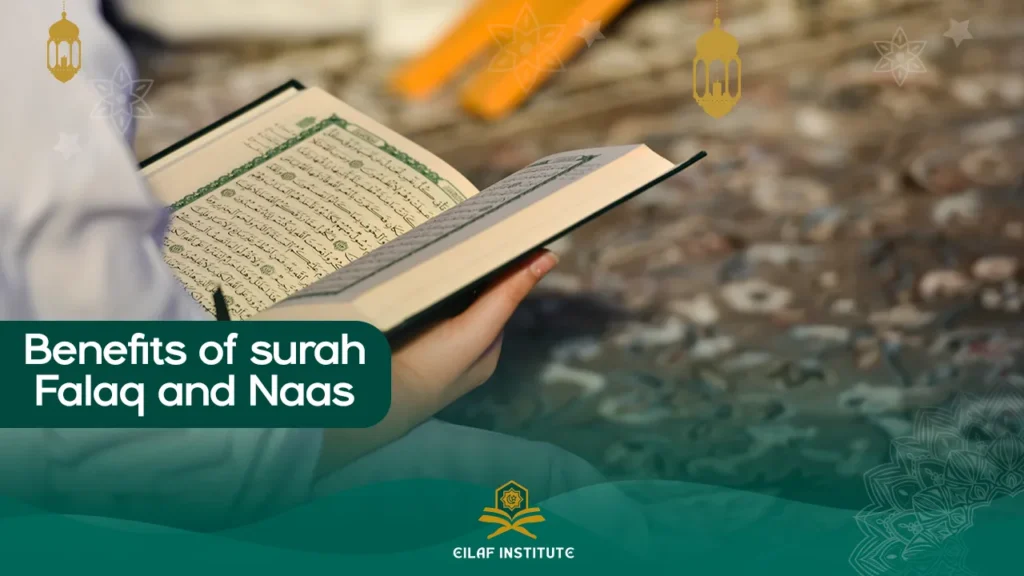Surah Al-Falaq and Surah An-Naas, collectively known as Al-Mu’awwidhatayn (the two Surahs of refuge), are a divine gift for comprehensive spiritual, physical, and emotional defense. Renowned for their ability to ward off the evil eye, black magic, envy, and the whisperings of Shaytan, these final chapters of the Quran act as an impenetrable shield for the believer. Recommended by the Prophet Muhammad (peace be upon him) for daily recitation in the morning, evening, and before sleep, unlocking the benefits of Surah Falaq and Naas fosters profound healing, peace, and protection.
What are Al-Mu’awwidhatayn? (The Two Surahs of Refuge)
The term Al-Mu’awwidhatayn translates to “the two [surahs] of seeking refuge.” This name perfectly captures the core quranic surah falaq and surah naas meaning. When we recite them, we are consciously placing our complete trust in Allah, seeking His divine protection against specific harms.
Surah Al-Falaq (The Daybreak):
This chapter is a plea for refuge from external evils. This includes protection from the darkness of night, the harm within creation, the evil of black magic, and the destructive force of envy (Hasad). The surah falaq benefits are primarily centered on guarding the believer from outside threats and the evil eye.
Surah An-Naas (Mankind):
This chapter focuses on the primary internal threat: the insidious whisperings (waswasa) of Shaytan. It serves as a shield against the doubts, fears, and evil inclinations that attack our faith from within. The core surah nas benefits lie in fortifying our hearts and minds against spiritual corruption.
The Sunnah: Why the Prophet ﷺ Made Them a Daily Practice
The immense benefits of surah falaq and naas are underscored by the consistent practice of the Prophet Muhammad (peace be upon him). His daily routine demonstrates that surah falaq and surah naas are essential tools for every believer.
Aisha (may Allah be pleased with her) reported:
“Whenever the Prophet ﷺ went to bed every night, he would cup his hands together and blow over them after reciting Surah Al-Ikhlas, Surah Al-Falaq and Surah An-Nas, and then rub his hands over whatever parts of his body he was able to rub, starting with his head, face, and the front of his body. He would do that three times.” (Sahih al-Bukhari)
This was not just a ritual but a deliberate act of seeking divine protection for the night. The Prophet ﷺ also advised reciting Surah Falaq and Naas three times in the morning and evening, stating they would “suffice you against everything.”
Book now: Islamic Studies Courses
Benefits of surah falaq and naas
The primary surah al falaq benefits and surah naas benefits lie in their power to guard against a spectrum of malevolent forces. They are the ultimate form of Ruqyah (spiritual healing).
1. Protection from Black Magic (Sihr)
Surat al falaq contains the verse “from the evil of the blowers in knots,” which is a direct reference to sorcery. These surahs were revealed after the Prophet ﷺ was afflicted by magic, and their recitation was his cure.
2. Protection from the Evil Eye and Envy (Hasad)
The surah falak directly asks for refuge “from the evil of an envier when he envies.” Reciting surah falaq and naas benefits the believer by creating the most effective defense against the harm caused by jealousy and the evil eye.
3. Protection from Shaytan’s Whisperings (Waswasa)
Surah naas benefits the psyche by acting as a weapon against the whispers that instill doubt, anxiety, and sinful thoughts. Seeking refuge in the Lord, King, and God of mankind affirms His absolute authority over all such evils.
4. Protection from All General Evils
The phrase “from the evil of that which He created” in Surah Al-Falaq is all-encompassing. This comprehensive protection is one of the greatest benefits of surah falaq.
Read also: Key Benefits of Surah Al Ikhlas
More Than Protection: Psychological and Mental Well-being
Beyond spiritual warfare, the recitation of these surahs offers profound psychological relief. The consistent practice of seeking refuge in Allah is a divine prescription for tranquility.
- Reduces Anxiety and Fear: It shifts your focus from worldly worries to absolute trust in Allah’s power, easing your emotional burden.
- Builds Inner Resilience: It creates a powerful mental shield, helping you dismiss negative thoughts.
- Strengthens Trust in Allah (Tawakkul): Regularly affirming your reliance on Allah brings immense peace.
Note: While some search for “surah falaq 1000 times benefits,” the Sunnah emphasizes consistency (morning/evening) over specific unverified numbers. However, frequent recitation is always rewarding.
How to Integrate These Surahs into Your Daily Life
To gain the full benefits of surah nas and surah falaq, integrate them into your daily routine as taught by the Prophet ﷺ.
- Morning & Evening: Recite Surah Al-Ikhlas, Surah Falaq and Naas three times each after Fajr and before Maghrib.
- Before Sleeping: Perform the Sunnah of reciting all three into your cupped hands and wiping them over your body three times.
- After Every Prayer: Recite each of the three surahs once after each of the five daily obligatory prayers.
- Global Practice: Whether referred to as sourate nass et falaq in French-speaking communities or by their English names, the protection remains universal for all Muslims.
FAQ
Why are Surah Al-Falaq and An-Naas called “Al-Mu’awwidhatayn”?
Because both surahs begin with the phrase “Qul a‘udhu” (Say, “I seek refuge”), they are given this name, which means “the two for seeking refuge.”
Did the Prophet Muhammad ﷺ use Surah Al-Falaq and An-Naas for Ruqyah?
Yes. When the Prophet ﷺ was affected by magic, Angel Jibril instructed him to recite Surah Al-Falaq and Surah An-Nas. As he recited them, the knots of the spell were undone, and he was healed. This confirms that healing is among the primary benefits of surah al falaq.

